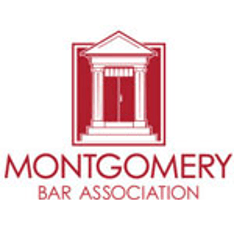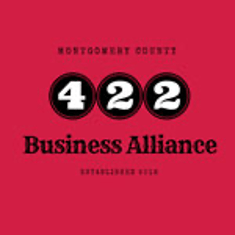Where the Federal Ban on Employee Non-Competes Currently Stands
Background
Since May 2024, the Fleischmann Law Firm has followed the Federal Trade Commission’s (FTC) efforts to nationally ban employee non-compete agreements under the Noncompete Rule (often written as the Non-Compete Rule and Non Compete Rule) Three prior blogs discussed this issue. The first discussed the Noncompete Rule.
The second and third blogs reviewed two major cases that challenged the FTC’s Constitutional authority to enact the Noncompete Rule. The matters were Ryan LLC v. FTC, which plaintiff filed in the U.S. District Court for the Northern District of Texas, and ATS Tree Services, LLC v. FTC, which plaintiff filed in the U.S. District Court for the Eastern District of Pennsylvania.
Case Challenge Updates
Shortly after Ryan filed suit, the U.S. Chamber of Commerce also challenged the Noncompete Rule in the same Texas District Court and joined Ryan.
In June 2024, Properties of the Village, Inc. (POV) filed a third challenging case in U.S. District Court for the Middle District of Florida (POV v. FTC). Two months later, the court granted POV a preliminary injunction, but strictly for POV, not nationwide. The FTC appealed.
On August 20, 2024, in the Ryan matter, Ada Brown, Judge for the United States Northern District of Texas, determined that the FTC exceeded its legislative authority and that the Noncompete Rule violated its enabling statute, effectively setting aside the nationwide ban (initially set to take place September 4, 2024).
In October 2024, the court denied ATS’ preliminary motion for an injunction against the Noncompete Rule. The court reasoned that because ATS could not establish irreparable harm or success probability, it would not be able to enforce the Noncompete Rule. ATS then voluntarily withdrew its suit but preserved the right to relitigate pending Ryan’s outcome.
With regard to Ryan, the FTC appealed Judge Brown's order to the United States Fifth Circuit Court of Appeals and, in early January 2025, presented opening briefs urging it to reverse the lower court’s decision. The FTC was to then complete briefing within the next few months.
FTC Commission Leadership regarding the Noncompete Rule
The FTC passed the Noncompete Rule subsequent to President Joseph Biden’s Executive Order encouraging competition. President Biden, during his administration, appointed Lina Khan Chairperson of the FTC. All of the aforementioned events, including passing of the Noncompete Rule, took place during her tenure. Ms. Khan advocated eliminating non-compete agreements.
In November 2024, during these events, Donald Trump won the presidential election. In January 2025, right after the FTC presented opening briefs to the United States Fifth Circuit Court of Appeals, President Trump appointed Andrew N. Ferguson as the new FTC Chairperson. When Mr. Ferguson was an FTC Commissioner, he voted against passing the Noncompete Rule and believed the agency overstepped its authority in enacting comprehensive regulation. He, instead, preferred a case-by-case application that focused on detailed non-compete misuses that violated the Sherman Antitrust Act (federal laws that preserve free and unrestricted competition). In February 2025, he established a Joint Labor Task Force to concentrate on locating and prosecuting customs that harm American workers.
Case Challenge Updates Under Current FTC Leadership
Under Mr. Ferguson’s tenure, the FTC filed motions to stay the Ryan and POV appeals. The FTC now has until September 8, 2025 in which to decide whether to discontinue pursuing its appeals.
Considering Mr. Ferguson’s past comments, views, and tactics thus far, it seems most likely that the FTC, under his leadership, will drop the appeals. This means that Judge Brown’s federal ban on the Noncompete Rule remains effective (i.e. the law is no longer applicable).
State laws regarding non-compete agreements remain effective.
Pennsylvania Non-Compete Agreements
Pennsylvania courts essentially accept non-compete agreements that:
- protect legitimate business interests (e.g. trade secrets, customer relations).
- are reasonable and fair with regard to length and geographic area.
- offer the employee sufficient consideration.
Sufficient Consideration
In 2020, the Pennsylvania Supreme Court, in Rullex Co., LLC v. Tel-Stream, Inc., more deeply examined the fair consideration concept. The Court clarified that when an employee executes a non-compete agreement after an employee hires them (even after the first day), the employer must offer some kind of consideration beyond the job offer or at-will employment (e.g. bonus pay, promotion, salary increase).
When an employee executes a non-compete agreement before or when employment begins, the job offer itself or at will employment is sufficient consideration.
The Court also clarified that non-compete agreements were not employment requirements
Watch this space for upcoming future blogs about this matter and other corporate law updates and changes.
The Fleischmann Law Firm, P.C.
The Fleischmann Law Firm specializes in business law and can guide your corporation through these and other rule and notice updates and changes.
Its attorneys partner with you to minimize risk and liability, offer objective and fair assessments, and weigh all circumstances and options. They offer solid recommendations and provide superior representation.
Attorney Craig J. Fleischmann and staff offer over three decades of experience, integrity, cost-effectiveness, value, and integrity. Contact the Fleischmann Law Firm today.







